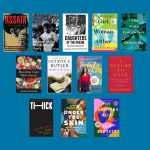 I was born and raised in Ghana in a society where, traditionally, a woman’s role in the community was limited to motherhood. Only a few had the audacity to transcend social expectations and affect the lives of other women around them. My grandmother was one of them.
I was born and raised in Ghana in a society where, traditionally, a woman’s role in the community was limited to motherhood. Only a few had the audacity to transcend social expectations and affect the lives of other women around them. My grandmother was one of them.
I saw my grandmother lead and inspire. I saw a great teacher who devoted her life to transforming the lives of young women in her community. As the leader of the women’s group at her local church, Naana, as everyone affectionately called her, became the mother many people wished they had. She counseled women of all ages with various life issues – some coming from low-income households, single-mothers, and teenage mothers. For them, she offered hope. As a young girl, I could hardly understand what she talked about, but I grew up with a constant reminder of the smile that wiped the tears off the women’s cheeks and carefully tucked it onto my memory.
My grandmother took care of her family and worked as a volunteer pastor. And though she had no formal training, most people considered her a teacher and a counselor. I became convinced that hers was the most important profession; no matter how informal the setting, she was still very effective. My grandmother’s counseling sessions did not end in her makeshift office at the church premises. Women in our neighborhood sat next to her for hours in my family’s living room. She prayed with those who needed prayer, she shared her Christian faith and offered hope. Some women needed to learn vocations like cooking, sewing and handmade crafts. My Naana taught them all of that and so much more.
As a young girl, nothing made a bigger impression on me than my grandmother’s ability to connect with other women from different ethnic and tribal backgrounds, social and academic statuses, and with religious differences. When I was old enough to understand the wisdom in her words, I found out how the best teaching moments are in sharing one’s life lessons and the wisdom gained from those experiences. Also, Naana not only shared lessons learned, through her connections she helped some of the women gain apprenticeships and work with local traders who found their skills very valuable, thereby helping them gain economic security. For them, this teacher didn’t only impart knowledge to them; Naana had given them a lifelong desire for hard work and dignity. Most importantly, she had given them hope.
Since joining Washington Area Women’s Foundation, I’ve learned that there are many Naanas right here in our community. They teach every day. They inspire in every moment. They challenge us all to commit ourselves to our vocations – any vocation – and give it our best effort. They give us the audacity to believe in our own futures, and to contribute to the community around us. They validate the Ghanaian proverb, “Obi nnim a, obi kyere,” which means: “If one does not know, another man teaches him.”
My grandmother’s work and impact were all the more impressive because she was redefining her role in our community and getting other women to think about theirs, too. My mother, for instance, opened her own business, a story that I shared last year on International Women’s Day. And as it turns out, Naana was ahead of her time. Now, when I go back to visit Ghana, I’m amazed by all of the progress. The women I grew up with are lawyers and engineers in addition to having families – or choosing not to. We are Naana’s legacy; the result of her investments in our community.
Mother Teresa once shared her thoughts about seemingly insignificant actions: “We ourselves feel that what we are doing is just a drop in the ocean. But the ocean would be less because of that missing drop.” My Naana understood her value even as a “drop”. The Women’s Foundation celebrates the value of women like my grandmother Naana. We celebrate the commitment that women all over the world make to positively impact someone else’s life in spite of their own challenges.
Julliet Boye is the development associate at The Women’s Foundation.


